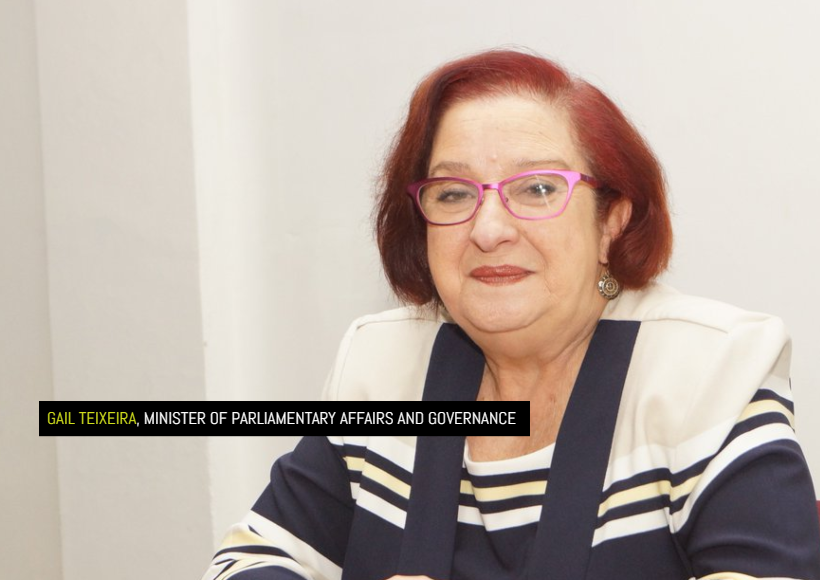The Government of Guyana (GoG) is currently responding to nine human rights petitions filed by local Non-Governmental Organisation (NGOs) to international bodies, eight of which were filed between 2020 and 2023. This was revealed by Minister of Governance and Parliamentary Affairs, Gail Teixeira, during her press conference on Wednesday.
Highlighting an increase in human rights petitions submitted to the Inter-American Commission on Human Rights (IACHR) and the United Nations (UN), Minister Teixeira said that the trend is indicative of growing confidence within civil society, and not as an increase in human rights breaches.
Between 1999 and 2015, a mere four cases were brought forth by NGOs, whereas, from 2015 to 2020, no petitions were submitted to the UN or any of its affiliated bodies.
However, in the subsequent years, eight petitions were filed by NGOs including the Guyana Press Association (GPA), the Amerindian People’s Association (APA), and the International Decade for People of African Descent Assembly – Guyana (IDPADA-G).
Minister Teixeira noted that while eight of the petitions are relatively new, the government is also responding to a petition from the 2012 period.
“I take this as a reflection of the confidence of those organisations to feel that they can have a complaints mechanism that they can report… So I expect there will be more of that coming from various NGOs,” the minister said.
Minister Teixeira stated that while there is the right to file a petition and seek redress, she urged a fact-based approach.
She said, “I would believe from a social conscious point of view that if one makes a complaint on your country, you should at least be factual.”
“In many of the cases we found the cases that have been brought they are not based on fact they are on misrepresentation and we have to prove that that is so…” Teixeira highlighted
The minister added that the government is duty-bound to respond to the petitions with facts including video and audio recordings and other evidence to be able to show that there is a misrepresentation.
“This is a country that is committed to implementing human rights and expanding our human rights framework; but also in terms of making sure we present our cases as best as we can. It does not mean that we will win but it does relate to the importance that we must respond and respond the best way we can with factual information,” Teixeira added.
Additionally, Teixeira acknowledged a shift in NGOs resorting to international bodies. She emphasized the rights of individuals under ratified conventions to approach international or regional bodies to file complaints. However, she stressed the importance of utilizing domestic remedies and exhausting local avenues before resorting to international bodies.
She said, “The constitutional bodies that are available in Guyana need to be used, they are there to be used in terms of looking for redress…I would hope that the NGOs here would use more of the domestic remedies that are available.”
Notably, the minister pointed out that the bodies like the Human Rights and Ethnic Rights Commissions are not being utilised as much as the Police Complaints Authority is being used.













